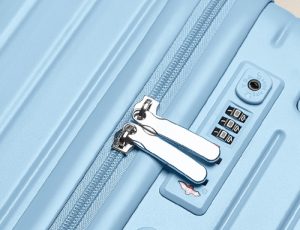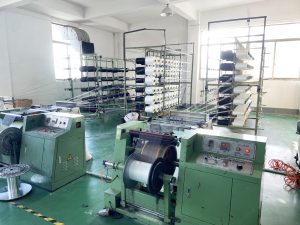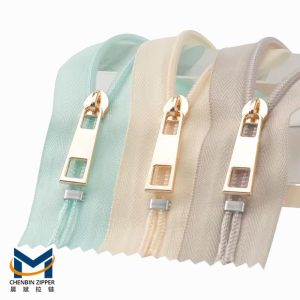
Crafting the Perfect Fit with Custom Zippers
Custom Zippers on Sale are positioned to provide solutions tailored to widely different requirements. Be it manufacturing fashion jeans, your outdoor gear, or any other sector where specialty zippers could contribute to form and function, knowing how specialty zippers can elevate the features of your products can help.
Exploring Material Options
| Material Type | Characteristics | Applications |
| Nylon Zipper | Lightweight, flexible, and resistant to corrosion. Ideal for garments and accessories requiring flexibility. | Apparel, Bags, Bedding |
| Metal Zipper | Durable and robust with a classic appearance. Suitable for heavy-duty applications. | Jackets, Jeans, Backpacks |
| Plastic Zipper | Cost-effective and versatile, available in various colors. Perfect for products needing customization. | Children’s Wear, Decorative Items |
Size and Style Considerations
The function and aesthetic of a zipper are greatly influenced by its size and style. Custom zippers can also be made depending on the length designs of each garment or are based on a product specification. For example, small zips are best used in lightweight materials such as dresses or kilt, and large are used in heavier zip output, such as outerwear or bags.
These zippers are available in style variations such as invisible zippers that can be sewn in clothing so that they go entirely unseen to create a clean-looking garment or bold statement zippers that can create a decorative element that makes the design stand out. Different zipper styles can affect the usability and durability of the overall product too. Zipper types — the style of the zipper chosen can affect the functionality and life of the end product.
Addressing Functional Requirements
This is because functional requirements play into the kind of zipper’s characteristic used, i.e., waterproof, and invisibility. Waterproof zippers help keep outdoor gear critical for harsh weather, such as tents and sleeping bags, safe and protective. Invisible Zippers: These have a sleeker look, making them suitable for formal clothing. The below types of zipper stitch do not appear from the outside, A neat finish is seen from the outside of sewn fabric which is ideal for formal wear.
Furthermore, custom zippers can incorporate special features like two-way sliders for enhanced convenience in jackets or sleeping bags, adding versatility to their use.
Design and Aesthetic Elements in Custom Zippers
Design elements play a crucial role in the overall appeal of products using custom zippers. By integrating various design aspects, manufacturers can create products that stand out while meeting practical needs.
Integrating Design Elements
Designers can personalize zip sliders and stop in separate colors, contrasting or matching with the general color of their products. Zip Plugs: You can even add brand logos on zipper pulls that improve brand recognition while adding individuality to items. Also, branding on zipper pulls helps draw attention to the brand and adds a personal touch to the product itself.
Designers also have the option to choose unique tooth shapes or finishes that complement their product’s design aesthetic, whether it’s sleek minimalism or rugged durability.
Durability and Longevity Factors
Applications all require custom zippers to be durable. Premium materials guarantee a long life even when subjected to constant use or more difficult climates. If you want to use it for certain outdoor gear and luggage applications where reliability matters, opt for rugged materials such as metal or heavy-duty nylon. When used outdoors or for luggage, where reliability is of the essence, it is wise to use upper materials like metal or reinforced nylon.
Continuous quality inspection at the time of production ensures that every zipper satisfies the high set standards before it is transported to the consumers. Such attention to detail ensures performance but also satisfaction for the customer by providing quality products that last. This meticulousness not only ensures performance but also provides a build quality that translates to customer satisfaction with durable products capable of withstanding time and use.
Finally, The custom zipper for sale is one of the most versatile solutions that can suit the needs of many industries. Manufacturers can manufacture the solutions in a way that they would complement the function with the appropriate material, size, style, design, and functional features, durability of the end-products can be ensured through robust quality control processes. Utilization of the right materials, forms, sizes, styles, and functional characteristics with eco-friendly production backed by stringent quality control processes helps these manufacturers churn smart-fit solutions to your needs while boosting both the functionality and aesthetic appeal of their products.
Balancing Cost Efficiency with Quality
Cost-Benefit Analysis of Customization
Before you opt for a custom zipper for sale, a cost-benefit analysis is the minimum that you should do. The process of customization usually results in a higher initial price, as a custom design and production process will need to be followed. But this initial investment often pays off in the long run. Custom-made zippers can enhance the appeal of your products, fulfill a specific functional necessity, or help with the branding of your product all at once, unique design things that you can have to help with the brand identity of your custom zippers can include specific logos and things like color preferences.
In competitive markets, most companies will find that the increased product value delivers a larger return than the investment, making the investment worthwhile. Bespoke zippers also can improve customer satisfaction and loyalty because they provide answers that are tailored to consumer desires. Further, since customized zippers can provide solutions that directly address the needs of the consumer, it can lead to better satisfaction with the product thereby also ensuring customer loyalty.
Production Timeline and Delivery Considerations
Understanding production timelines and delivery considerations is also an important consideration in balancing cost efficiency with quality. Custom zippers are more complex than the previous requirement, and need a thorough plan in terms of the delivery, equipment sourcing, and arrangement of the buyer and manufacturer. The order of custom zipper plans needs to link between the supplier and the manufacturer detail to the quality without the risk of delays the custom zipper not being released in time.
Depending on how complex the customization is, the lead times differ. Unless you are in control of their production timeline then it is essential to liaise with your supplier to find an appropriate time frame that considers a potential delay from their end. This allows you to take proactive actions that keep the supply chain moving and your products to market on time.
Selecting the Right Supplier for Custom Zippers
Criteria for Supplier Evaluation
Choosing the right supplier for custom zippers is crucial in achieving the desired outcomes. Several criteria should be considered during evaluation:
- Experience and Expertise: Assess the supplier’s track record in producing high-quality custom zippers across various industries.
- Material Quality: Ensure that they use premium materials that align with your product’s durability requirements.
- Customization Capabilities: Verify their ability to offer a wide range of customization options including size, color, material type, and special features.
- Production Capacity: Confirm their capacity to handle orders within your required timelines without compromising quality.
Importance of Sample Testing and Feedback
However, sample testing is a must before entering into any supplier agreement. Get some samples of custom zippers, so that you can judge the quality in person. It enables you to check things like the strength of the materials, how smoothly the slider slides, how the teeth fit together, etc. At this stage, you can check material strength, slider smoothness, tooth alignment, and general operation of the assembly.
Feedback from sample testing should be communicated back to the supplier for any necessary adjustments before full-scale production begins. This iterative process ensures that the final product meets all specifications and expectations.






